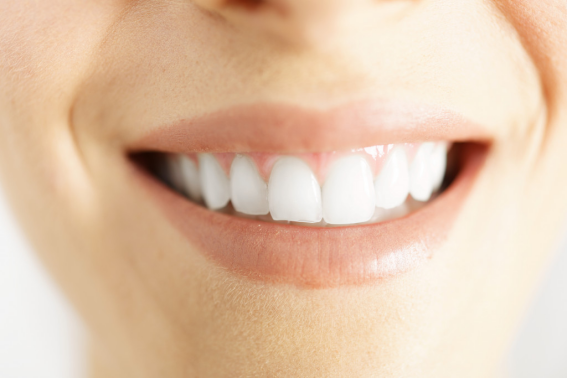Fitness and Wellness | By Maria Santos

Share
• Vitamin D plays an important role in maintaining the strength of teeth and bones.
• Low vitamin D levels can lead to weaker bones and teeth, dry mouth, and an increased risk of periodontal disease.
• Sun exposure is the main source of Vitamin D, but fatty fish, egg yolks, fortified milk, and cereals can help.
• Your dentist may recommend supplements, oral hygiene tips, or cosmetic treatments to restore strength and appearance to damaged teeth.
Many people know that vitamins and minerals are essential for overall health. But did you know that certain vitamins, such as vitamin D, play a key role in keeping your teeth healthy? Explore why vitamin D is so important for your oral health.
CLOSETable of Contents
00001. Why Vitamin D Matters
00002. Causes of Vitamin D Deficiency
· Dark Skin
· Age
· Obesity
00003. Oral Health Damage Due to Vitamin D Deficiency
00004. What Your Dentist Can Do
· Oral Hygiene Tips
· Cosmetic Treatment
· Prescribe Vitamin D Supplements
00005. Getting Enough Vitamin D
Why Vitamin D Matters
Vitamin D plays an important role in dental health by helping to maintain the strength of your teeth and bones. One study found that children with higher levels of vitamin D had stronger tooth enamel and fewer cavities than those with lower levels of the vitamin. Another study found that older adults who took vitamin D supplements every day for a year had healthier gums and fewer cases of periodontal disease than those who didn’t take any supplements.
The body needs vitamin D to absorb calcium, essential for strong bones and teeth. Without enough calcium, your body will break down existing bone mass, weakening bones, and teeth. Vitamin D helps prevent this by allowing more calcium to be absorbed into the body.
Causes of Vitamin D Deficiency
The main source of vitamin D is the sun’s ultraviolet radiation. Unfortunately, many people spend much of their day indoors or wearing sunscreen outdoors and don’t get enough sunlight to meet their daily needs. People living in northern climates also suffer from a lack of vitamin D due to limited exposure to the sun during winter. Here are some other causes of Vitamin D deficiency:
Dark Skin
People with darker skin produce less vitamin D in response to sunlight than those with fairer skin. This is because their skin contains more melanin, which blocks some ultraviolet radiation from reaching their bodies.
Age
As you age, your body becomes less efficient at producing vitamin D. This is due to a decrease in fat and skin thickness and changes in hormones. This can lead to a deficiency in older adults who don’t consume enough foods high in nutrients or take supplements.
Obesity
People with a high body mass index (BMI) often have difficulty getting enough vitamin D because it is stored in fat cells. This can make it difficult for the body to absorb and use nutrients.

Oral Health Damage Due to Vitamin D Deficiency
A vitamin D deficiency can weaken your gums and increase the risk of periodontal disease. This is because the body needs calcium, which requires vitamin D to be absorbed, for healthy teeth. Without enough calcium, teeth may become more vulnerable to cavities and decay. It may also cause your teeth to become brittle, which ultimately causes them to break or crack more easily.
Vitamin D deficiency can also lead to dry mouth. This condition makes it difficult for your body to produce enough saliva, essential to oral health as it helps wash away food particles and bacteria. A dry mouth increases the risk of tooth decay and gum disease.
What Your Dentist Can Do
If Vitamin D has been determined to have caused your oral health issues, your dentist can recommend and do the following:
Oral Hygiene Tips
Your dentist can provide personalized guidance on preventing oral health issues caused by a vitamin D deficiency. This may include advice on brushing twice daily, flossing regularly, drinking fluoridated water, and avoiding sugary drinks and snacks.
Cosmetic Treatment
If your teeth are already damaged from a vitamin D deficiency, your dentist can provide cosmetic treatments such as bonding, veneers, or crowns to restore their strength and appearance. Dental veneers are designed with precision to perfectly cover the front surface of your teeth, adding an extra layer of thin protection. It is a great option if you also suffer from discolored or misshapen teeth. It helps you achieve an aesthetically pleasing smile.
Prescribe Vitamin D Supplements
If you are found to have a deficiency, your dentist may prescribe vitamin D supplements or recommend certain foods that will help increase your Vitamin D levels. Supplements can come in liquid, tablet, or capsule form and should be taken as directed by your doctor.
Getting Enough Vitamin D

The body cannot produce enough vitamin D, so getting your vitamins from other sources is important. So how do you ensure you’re getting enough vitamin D? Here are some tips:
· Spend time outdoors in the sun whenever possible.
· Eat foods rich in vitamin D, such as fatty fish (salmon, mackerel, and sardines), egg yolks, liver, fortified milk, and cereal.
· Take a daily vitamin supplement to ensure you’re meeting your needs.
· Have your vitamin D levels checked regularly, especially if you’re at risk for deficiency.
Vitamin D is important for overall health, including dental health. If you’re concerned about a possible deficiency, talk to your dentist about increasing your levels and protecting your oral health. You can maintain a healthy smile for years with proper care and nutrition.








Post comments